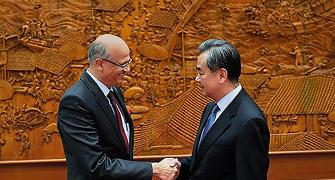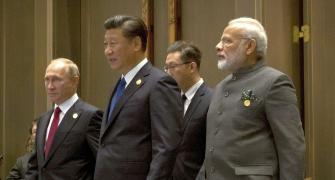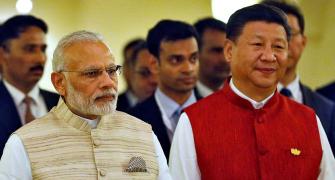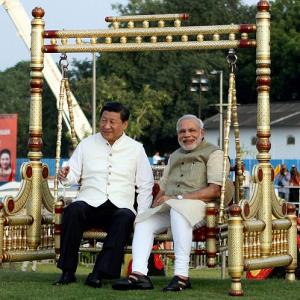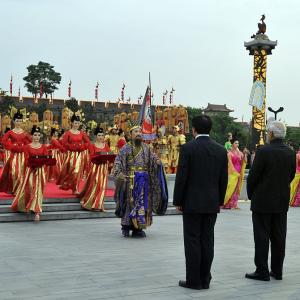Modi was expected to arrive in Wuhan in the evening on April 26 and join Xi in the informal summit at a picturesque location the next day.
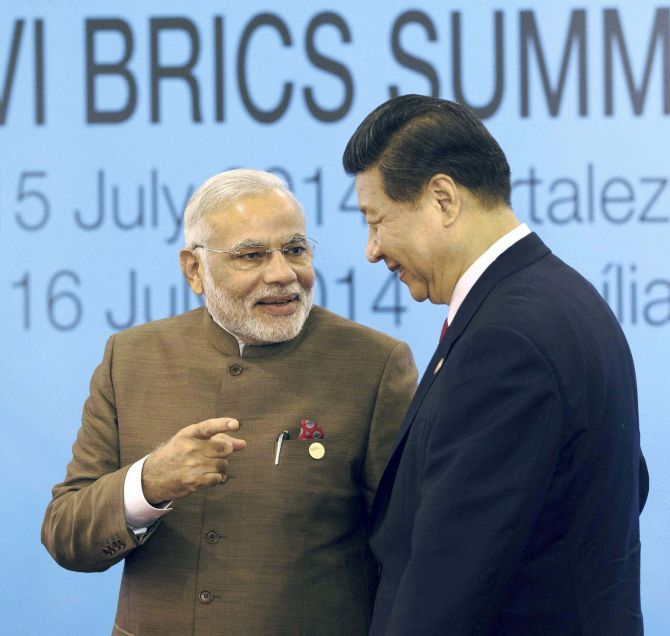
The Wuhan summit between Prime Minister Narendra Modi and Chinese President Xi Jinping could be as significant as the one between former premier Rajiv Gandhi and then leader of China Deng Xiaoping in 1988, the official Chinese media commented on Tuesday.
Xi and Modi will hold an "informal summit" in central China's Wuhan city from April 27 to 28 to improve bilateral relations and discuss global issues of mutual concern.
Both the leaders will try to work out a new paradigm for the bilateral ties bogged down with a host of disputes and differences.
"The meeting can be as significant as the one in 1988 when Chinese leader Deng Xiaoping and then Indian prime minister Rajiv Gandhi met, and will set the course for bilateral ties," an op-ed in Global Times said.
Another official newspaper, the China Daily, said it remains to be seen whether the Modi-Xi summit "will live up to its billing as an unprecedented meeting" like the 1988 meeting between Rajiv and Deng.
"This (Rajiv-Deng summit) was when the two countries agreed to put their quarrels behind them. However, this has proved harder to do than say.
"Yet clearly both Beijing and New Delhi hope for something substantial from the upcoming two-day meeting, since the announcement was made on Sunday after talks between State Councilor Wang Yi and visiting Indian External Affairs Minister Sushma Swaraj," the China Daily said.
In its editorial 'Xi-Modi meeting to show diplomatic wisdom of China, India', the Global Times said "Indian leaders attach importance to reciprocity in diplomacy. After visiting China in 2015, Modi attended the Ninth BRICS Summit in Xiamen last year and will attend the summit of Shanghai Cooperation Organisation in Qingdao in June".
He is visiting China before June to meet Xi. This unusual move highlights how much the two sides value this meeting, it said.
The tabloid which is attached to the ruling Communist Party of China's official publications and known for its anti-India rhetoric said: "within China, hostility toward India is being replaced by hopes for friendly ties. The two countries need more communication to enhance mutual trust and eliminate the possibility of another border crisis".
"Asian powers and emerging countries, both China and India share many common interests in international affairs. They both have to strive for the right to develop and face Western pressure on issues like trade and intellectual property rights. There is large room for economic cooperation.
"Many conflicts between China and India broke out due to a lack of trust or at Western instigation, like the border disputes and so-called dragon-elephant competition," it said.
The US and Japan began underscoring Indo-Pacific strategy last year in an explicit attempt to rope in India against China. But the strategy hasn't brought India any strategic benefit except to trigger vigilance between New Delhi and Beijing, it said.
China and India cooled down soon after the Dokaam standoff, which indicates the solid foundation for ties. The West wanted China and India to confront each other, but it didn't work out that way, it said.
China and India have a more robust economic development than other emerging countries and are both independent. Any attempt to manipulate the way they deal with each other will likely fail, it said.
The cooperation of two countries, home to about 40 per cent of the global population, is highly significant for the whole world, it said.
The China Daily editorial said "there is good reason for optimism" for Modi-Xi summit.
The previous meeting between Xi and Modi in Xiamen last September and it produced an end to the tense border standoff (Doklam) that had been souring relations for months, it said.
"That incident was a reminder to the two proud neighbours that they must manage their border issues, or they will continue to trouble them.
"While third parties may profit from a deteriorating China-India relationship, the two countries themselves will not. They should be vigilant of others seeking to benefit at the expense of their friendly relations and recalibrate their relationship so it serves more constructive purposes," it added.
Though there were informal get-togethers organised by Chinese leaders with foreign dignitaries, it was part of state visits.
The idea for a such a summit was mooted when Modi and Xi met during the BRICS summit at Xiamen last year in the backdrop of the Doklam standoff and evolved steadily over the months with high-level meetings starting with Chinese Foreign Minister Wang Yi to Delhi last December.
Modelled on the 1988 ice-breaking summit between former prime minister Rajiv Gandhi and Chinese paramount leader Deng Xiaoping, the summit would look at the big picture of India-China relations.
Modi-Xi will not sign agreements but build trust to resolve bilateral issues: China
Modi and Chinese President Xi Jinping will not sign any agreements or issue a joint statement at the Wuhan summit this week but they will try to build mutual trust and reach important consensus to resolve the outstanding issues, a top Chinese official said.
"Both sides have agreed not to sign an agreement or release any joint document but reach important consensus to resolve outstanding issues," Chinese Vice Foreign Minister Kong Xuanyou told the media here on the two-day summit.
This informal summit is the first of its kind and there is no precedent in each other's country, he said, explaining why both the leaders opted to hold the summit.
"At the informal summit, the two leaders will have heart-to-heart discussions on overarching issues and try to build mutual trust and consensus to resolve outstanding differences," Kong said.
Asked whether the Doklam issue and the boundary dispute will figure in the talks, Kong said Doklam happened because of lack of trust.
"The two countries need to create conditions and trust between them to resolve the boundary issue," he added.
The summit will mostly be one-on-one where they will devote most of the time to discuss the big picture of the India-China relations rather than specific issues, official sources said.
Sources said that the summit is not the platform where the two leaders will discuss specific issues like the UN ban on Pakistan-based Jaish-e-Mohammed terror group chief Masood Azhar and tick off one by one.
A veto-wielding permanent member of the UN Security Council, China has repeatedly blocked India's move to designate Azhar a global terrorist under the Al-Qaeda Sanctions Committee of the UNSC.
The two leaders will have free-flowing discussions and no agreements were expected to be signed, they said.
Also there will be few officials present at the informal summit venue.
Most of the time the two leaders were expected to interact between themselves with the presence of just translators, official sources said.
Modi was expected to arrive in Wuhan in the evening on April 26 and join Xi in the informal summit at a picturesque location the next day. Their meetings were expected to go on till mid-day of April 28 after which the Prime Minister will return, they said.

